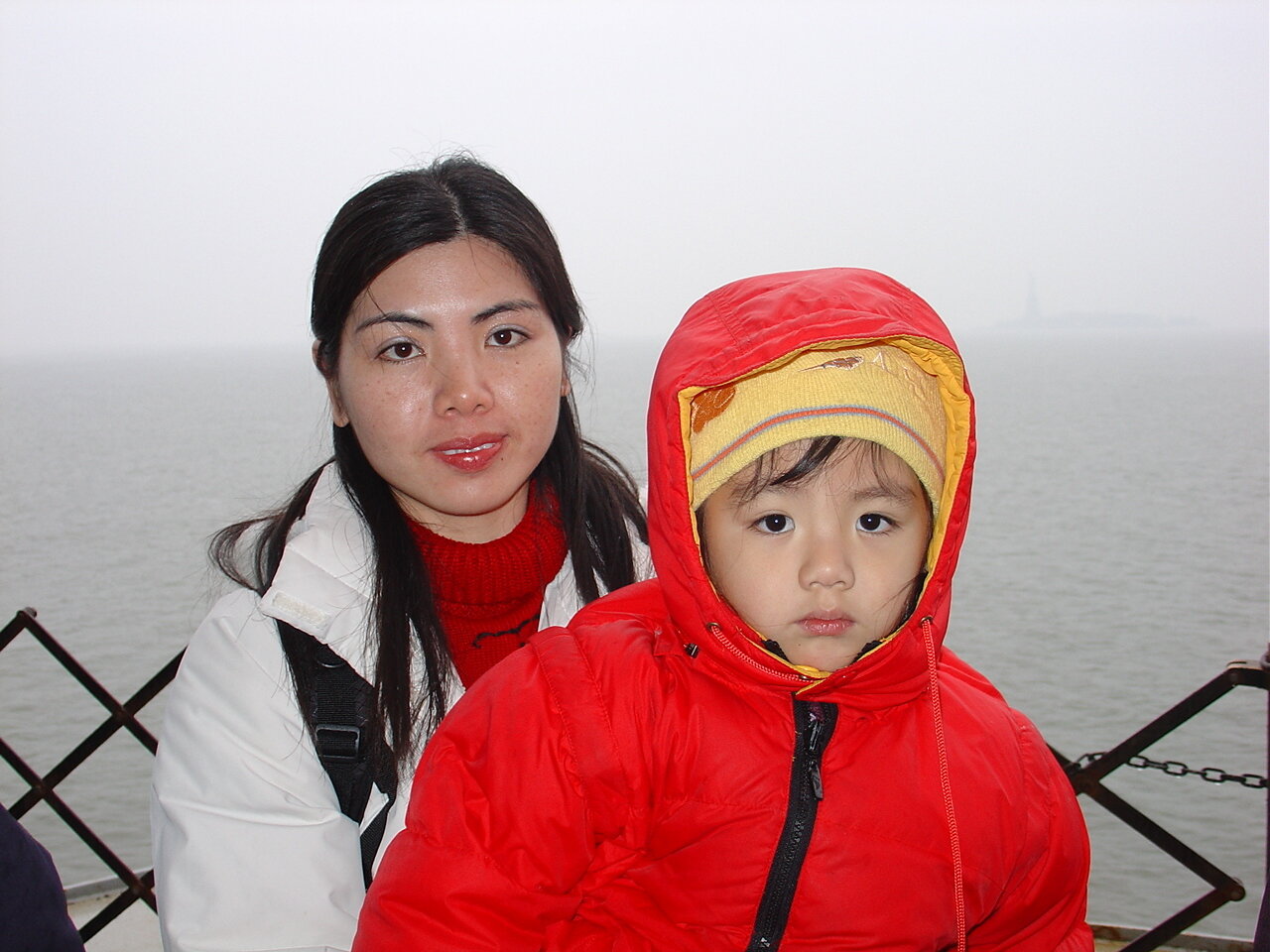My Mom and Breaking News
My mom sees the “AMERICA IN CHAOS” headline on TV and urges me to translate the CNN reporting of the protests for her.
I plop myself next to her on our couch, and I try my best to reconcile my two colliding worlds. I translate the reporter’s words messily, silently blaming myself for not remembering more Chinese. The college-educated self in me wants to chime in —these people are fighting for righteous justice, and most of the protests are peaceful, not violent and chaotic like what was broadcasted on the news. But my mom’s shocked expression speaks louder. Telling me to look away. If we must look, we look silently. To look and to hold it in our hearts. My mom reminds me again to not take for granted what my dad has sacrificed for us to live in this country (do anything, and we risk being deported). She says we have to focus on what we can do. It’s not our problem. We are to wear our masks religiously — that’s what our relatives in China did to survive the outbreak. Still, the news continues to permeate our 2-room apartment, accompanying our every meal.
I grew up afraid of the news. As a kid, my mom told me stories about girls disappearing from their neighborhoods to warn me of the bad guys who tricked little girls with candy. And when I got my first smartphone, she told me about a woman who got cancer from charging her phone next to her bed.
Over the years, stories such as these hovered over the dinner table, seamlessly inserting themselves into “how was your day” and “thanks for cooking, mom.” Every piece of news she told us served as cautionary tales, something to learn from and retreat back to the safety of our own home, to never confront and never engage. It didn’t matter if the news sources were inaccurate. Our protection mattered more. Somehow, speaking tragedies and dangers into our lives would prevent them from happening to us.
My mom would also tell us stories from her own life. They started out safe, safer than the news, at least. When seven-year-old me cried to my mom that I didn’t want glasses, she assured me that I should feel lucky, recalling how she wanted glasses so badly as a kid that she would purposefully read in the dark to worsen her eyesight. I didn’t know it then, but she told me more of this story every year — familiarizing me with the evils that had forced her to long for an escape.
“I was raised in a poor, rural village in Southern China in the 1970s,” my mom began, speaking Chinese. “I had no one to go to, cry to, when the ghosts came and haunted me at night. Almost every week, someone in the village passed away. I didn’t see the bodies, I never did. But I do remember the wooden casket that was raised on a hill in my village. I remember the cries and laments of my neighbors which I heard every night. The rhythmic steps of the villagers carrying the casket across town before burial. So, you can imagine why I have always been so scared of sleeping in the dark. Back then, I would run to one of the few gaslit street lamps in the middle of the night and read until the break of daylight. Now, I sleep with my bedside lamp on.”
“The Qing-Ming festival is my least favorite time of the year,” my mom continued. “Qing-Ming is a traditional Tomb-Sweeping day in China where people bring the dead’s favorite wine and food to their tombs, and every time our villagers prepared for the festival, I wanted to run away. Far, far away from the cemetery of ghosts. I worked my hardest to get out of the village. I got into nursing school when I was sixteen, but the ghosts followed me even to the capital of the Southern Chinese province. My classmates and I would run up the stairs to our eighth-floor dorm as fast as we could when we passed the fifth-floor cadaver room, where I knew the ghosts of my village now lived.”
The story usually ends here — with my mom graduating from nursing school and moving to the United States with two-year-old me, my older sister, and my dad. She always adds that she has changed since her girlhood. She found God in America, and ghosts are nothing but a fading mark of her past. “We are here, and we are safe,” my mom reassures me, but I know that, at the same time, she is reassuring herself.
I’ve felt the burden of my mom’s past trickle into our daily lives, into the headlines she brings into our household. I’ve felt it as I grew up, when she would come into my room every night to make sure I was soundly asleep, carefully tucking me into my warm blanket. I’ve felt it when I first moved to college, when she would text me every night, asking if I was safely back to my dorm. I feel it now, with the weight of a global pandemic and a constant influx of breaking news. For the past four months in quarantine, my mom has been diligently watching CNN and reading Chinese articles on the escalating situations in America. When she asks me to translate, I try to not roll my eyes at her seemingly silly questions, as I had grown up doing, and answer with empathy. The unknown still scared her, haunted her, and I didn’t want to recast the shadows of her past.
The recent surge of the Black Lives Matter movement collided with the pandemic. I soon found myself torn between honoring the home my parents created for me and fighting in solidarity with the suffering Black community. I fully examined the bubble I was raised in — I had the privilege of being able to detach myself from the ghosts of my mom’s past and the dangers around me. A kind of privilege that I now realize has, over the years, confined me into a state of fear and mere reflection. It was one thing to meekly follow my mom’s news-induced pandemic precautions, like leaving my packages out on my balcony for 24 hours before opening them. But it was another to swallow my responsibility to engage with America’s dire need for progress. A life spent tiptoeing around the news is a safe, yet stagnant life. Genuine change starts from the home. I start by unlearning my fear of the news and having those tough conversations with my mom, urging her to face, not shy away from, the unknown.



